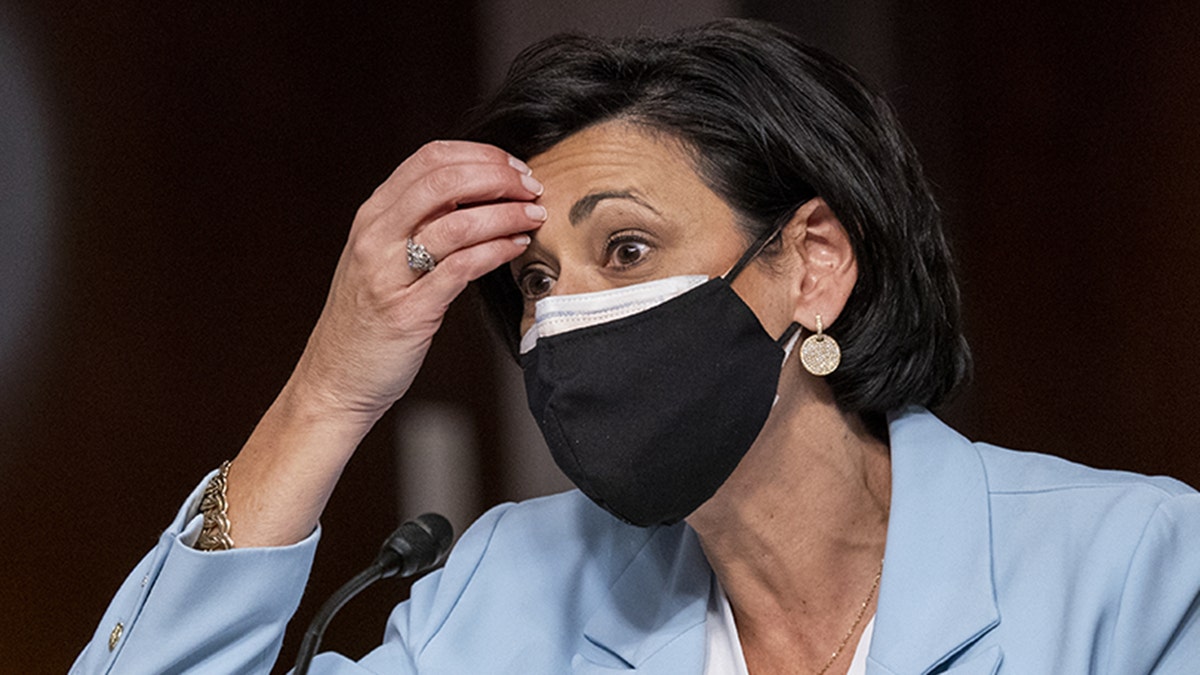Fox News Flash top headlines for January 27
Fox News Flash top headlines are here. Check out what's clicking on Foxnews.com.
U.S. Centers for Disease Control and Prevention (CDC) Director Dr. Rochelle Walensky said Wednesday that while severity of disease "appears to be lower" with the omicron variant of the coronavirus, labeling the variant of concern as "milder" does not mean that it is mild.
The public health leader pointed out what her agency saw was a "clear separation between cases, hospital admissions and deaths" over the course of the past month.
"And, while cases have dramatically increased and are five times higher than they were during the delta wave, hospitalizations have not increased at the same rate and deaths remain low in comparison to the case counts," she explained at the White House COVID-19 Response Team briefing.
Walensky said that while hospitalizations have been higher now than previously reported, the ratio of hospitalizations to cases remains lower than prior peaks.
Additionally, other disease severity indicators among those who are hospitalized are lower with omicron.
Nevertheless, the director instructed Americans to remember that the U.S. is still facing a "high overall burden of disease."

Rochelle Walensky, Director of the U.S. Centers for Disease Control and Prevention (CDC), speaks during a Senate Health, Education, Labor, and Pensions Committee hearing in Washington, D.C., U.S., on Tuesday, Jan. 11, 2022. (Photographer: Shawn Thew/EPA/Bloomberg via Getty Images)
"Hospitalizations have rapidly increased in a short amount of time, putting a strain on many local health systems," Walensky noted.
"Importantly, ‘milder’ does not mean ‘mild.’ And, we cannot look past the strain on our health systems and substantial number of deaths – nearing 2,200 a day as a result of the extremely transmissible omicron variant," she said.
Walensky called on people to remain vigilant in the face of the virus, and continue to use prevention measures like wearing face masks, social distancing and getting vaccinated or boosted.
Walensky's comments come as National Institute of Allergy and Infectious Diseases (NIAID) Director Dr. Anthony Fauci told reporters the country is not yet at a place with omicron that "we are willing to live with, in the sense of not having it disrupt our lives."
VACCINE MANDATE DEADLINE TO START FOR FIRST WAVE OF HEALTH CARE WORKERS
"As Dr. Walensky said, when you have over 2,000 deaths, 150,000 hospitalizations, and you have people who are now getting infected to the tune of somewhere around 700,000 a day, we’re not there yet," he explained.
The nation's top infectious disease experts said the U.S. wants "sufficient control" – not eradication – including a level of infection accepted with other respiratory viruses.
"We believe we can get there because we have the tools with vaccines, with boosts, with masks, with tests, and with antivirals. That’s what we talk about when we get to the point where we can, quote, ‘live with the virus.’ But, as Dr. Walensky emphasized, that is not where we are at this point. So, we still have a way to go," he concluded.
Omicron is responsible for nearly 100% of new COVID-19 cases in America.
Data from the Johns Hopkins Coronavirus Resource Center shows new daily deaths approaching record numbers on Thursday, at 4,040. There were 653,120 new cases – less than half of this month's record.
While some states have signaled that omicron has peaked or could be peaking, others have activated crisis standards of care, with hospitals overflowing and not enough staff.
The American Academy of Pediatrics said earlier this week that nearly 1,151,000 child COVID-19 cases were reported for the week ending Jan. 20.
CLICK HERE TO GET THE FOX NEWS
Although kids tend to fare better than adults, experts say they still can suffer from serious illness and long-term health impacts from the virus.
Scientists are also monitoring "stealth" omicron sub-variant BA.2, which has been found in at least 40 countries.
The Associated Press contributed to this report.



